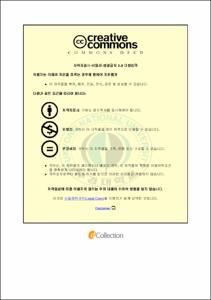알렌 긴즈버그의 문명 비판시 연구
- Alternative Title
- A Study on the Anti-establishment Poetry of Allen Ginsberg
- Abstract
- This thesis aims to study Allen Ginsberg's consciousness of anti-establishment in his poems dealing with autobiographical, social and political, and ecological issues. The study will examine how his poetry, usually labelled as confessional or even grotesque, has been deeply involved with public issues of the contemporary United States.
Ginsberg's first notable poem, "Howl" stunned his audience with unconcealed confessions of his homosexual experiences and drug use, and unpublishably obscene remarks. As a poem which makes him a leading figure of the Beat Movement in the 1950s, "Howl" shows a highly sensitive and critical mind responding to the society which has been restricting the basic rights of a person such as right to express his sexual orientation. In part II of this poem, Ginsberg deepens his criticism on the American society by comparing Moloch, a mythic God in the Bible, to the mechanistic, insensitive, and cruel United States.
The critical mind budded in "Howl" fully blooms in his following poems as "A Supermarket in California" and "America." In "A Supermarket in California," Ginsberg's criticism focuses on the materialistic and capitalistic realities of the U.S., which has lost its original ideals of love and integrity, in an overnight "Odyssey" with his congenial predecessor, Walt Whitman. "America" in turn reveals Ginsberg's firing criticisms on overall aspects of the United States ranging from its history "full of tears," through McCarthyism using the Cold War to its political profit, to its foreign policies.
In poems concerning Vietnam War, "Wichita Vortex Sutra" and "War profit Litany," Ginsberg criticizes the US government and media for misleading people with distorted informations on the reality of the war, and blames the expansion of the war on the conspiracy of politics and military-industrial complex.
The final chapter of this thesis deals with poems showing Ginsberg's anti-establishment subject from his ecological standpoint. In "Nagasaki Days" and "Plutonian Ode," he is deeply concerned with the danger of plutonium in polluting the soil and its serious threat to human existence. "Garden State" also deplores the transformed scenes of New Jersey from beautiful "Garden State" to the one with cities full of "garbage," "bulldozers," and even factories manufacturing "atom bombs."
In his poetic career, Ginsberg develops from his early confessional mode to a more public figure, commenting on social and political issues, but the fundamental feeling which flows through his poetry may be referred to as love for, or at least ambivalence towards his country, as is shown in "America." His criticism on the United States basically comes from his deep love for it, and that is the reason his wake-up call still rings within the hearts of the people.
- Issued Date
- 2010
- Awarded Date
- 2010. 2
- Type
- Dissertation
- Keyword
- 문명 비판시
- Publisher
- 부경대학교
- Alternative Author(s)
- Son, Jun Hyeuk
- Affiliation
- 부경대학교 대학원
- Department
- 대학원 영어영문학과
- Advisor
- 윤희수
- Table Of Contents
- 서 론 1
Ⅰ. 사회를 향한 외침 6
Ⅱ. 반전 문화의 중심에서 23
Ⅲ. 생태주의적 비판정신 38
결 론 48
인 용 문 헌 50
- Degree
- Master
- Files in This Item:
-
-
Download
 알렌 긴즈버그의 문명 비판시 연구.pdf
기타 데이터 / 686.12 kB / Adobe PDF
알렌 긴즈버그의 문명 비판시 연구.pdf
기타 데이터 / 686.12 kB / Adobe PDF
-
Items in Repository are protected by copyright, with all rights reserved, unless otherwise indicated.